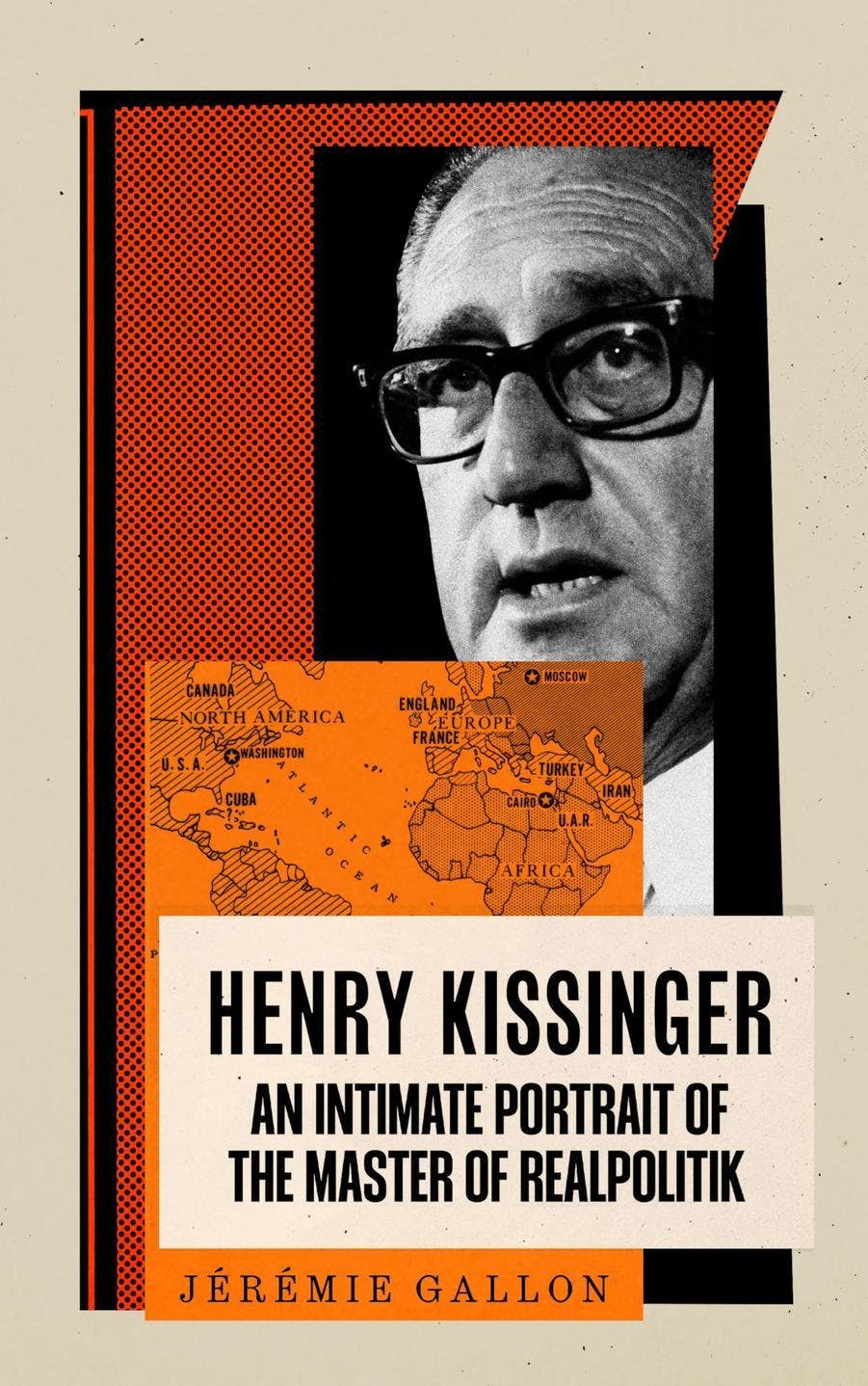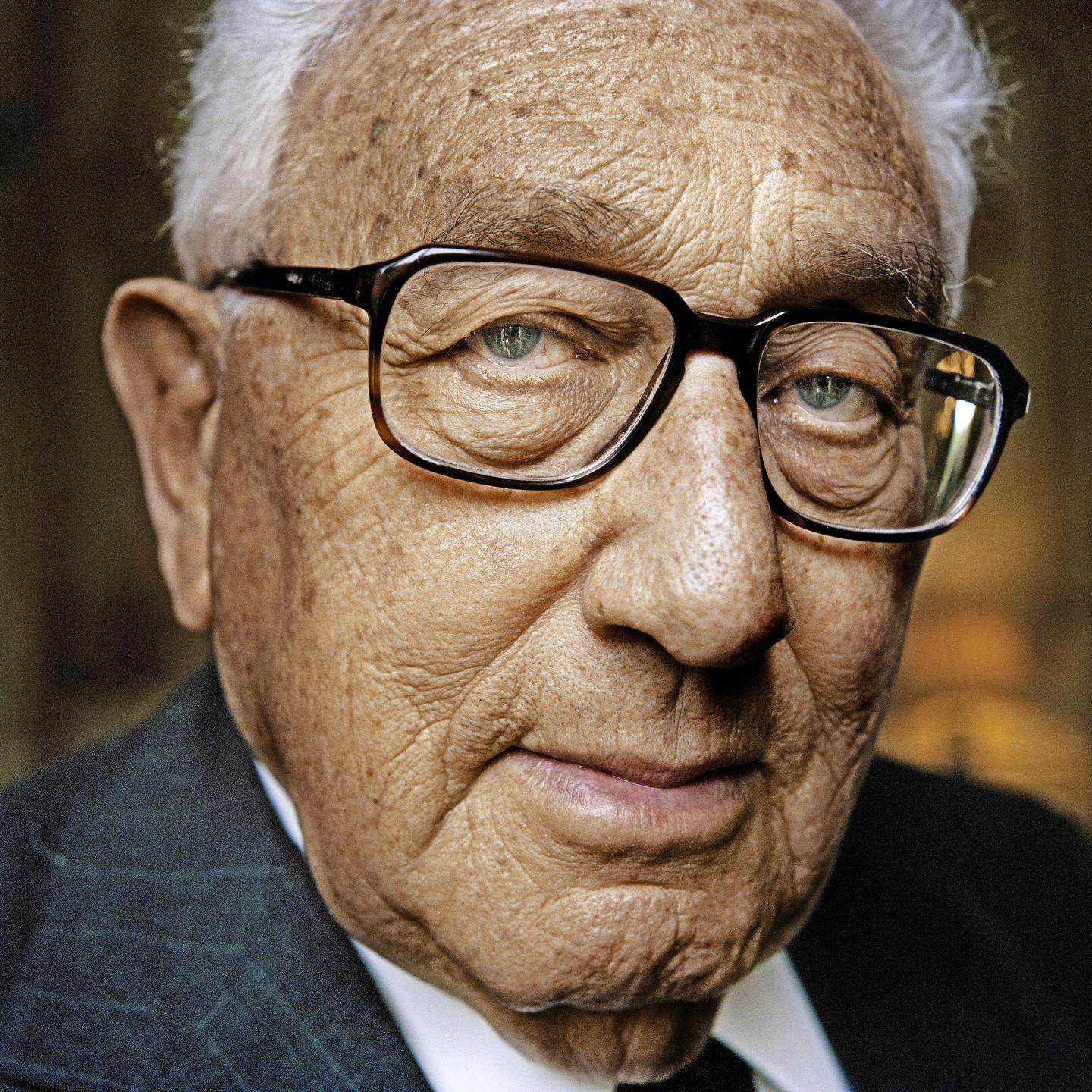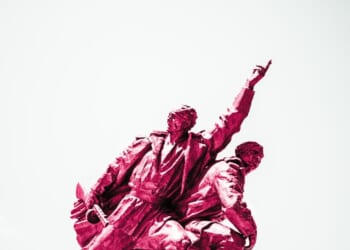This article is taken from the October 2025 issue of The Critic. To get the full magazine why not subscribe? Get five issues for just £25.
This is a curious book, but it is not without interest. How could it be? Kissinger is an endlessly fascinating character. But it tells us very little that the experts didn’t already know about him, and its curious structure — a series of essays in alphabetical order — lends it a disjointed, at times duplicative, even somewhat random, character.
As a consequence it falls short of a full picture for anyone who wants to come to grips with Kissinger for the first time. Jérémie Gallon, its author, himself acknowledges it is “not a new biography” but an “intellectual portrait”, though in truth it falls short of that, too.

So one might perhaps wonder why, nowadays, when so few books are translated from French to English, this particular volume has been a priority. Maybe there is indeed something valuable in the book for an Anglophone readership: the author’s own very distinct perspective, which is very French, and very European.
Very French both in its view of diplomacy and of the man himself. English writing on Kissinger tends to focus on his ideas and how he implemented them. Gallon, in contrast, has the characteristic attachment of a citizen of the grande nation to the great men of world history, in fairness a trait shared by Kissinger himself, who saw himself as one of them.
So there is mutual admiration for De Gaulle, one of the “leaders in Europe who represented weak countries but possessed a sense of global foreign policy”, as Kissinger waspishly put it in a 2005 Spiegel interview. Ranked with him, and also the subject of essays in the book, are Zhou Enlai and Anwar Sadat, all amongst “the most impressive men I have ever met”, said Kissinger. And of course so is Richard Nixon — though to describe the dozen pages on this relationship as sketchy would be to hugely exaggerate its depth and its insight.
Maybe French observers also find it easier than buttoned-up Anglo-Saxons to acknowledge that Kissinger was very much a man, with the passions of most men. In an essay entitled “Glamour”, Gallon notes Kissinger’s well-known weakness for beautiful women, expensive restaurants and the bright lights of the paparazzi — the aphrodisiac of power, as he put it (apparently 1972 Playboy bunnies voted Kissinger their No. 1 choice for an amorous tryst).
Indeed, the friction with Nixon wasn’t only over politics: the White House social secretary was told in writing in 1971 that “the President feels that Henry should not always be put next to the most glamorous woman present” but merely the “most intelligent and interesting”.
Kissinger’s other passion, for football (according to Gallon, though his sourcing is a bit sketchy) went well beyond his long-distance fandom for his German hometown club in Fürth. Kissinger apparently bonded with Brezhnev and Gierek over discussions of the 1974 World Cup, and worked to build interest in football in the US, bringing Pelé to the New York Cosmos in 1975, and trying to get the World Cup for the US in the 1980s.
It’s less clear to what extent the interest was reciprocated. Gallon claims, somewhat implausibly, that Kissinger received a standing ovation at the Netherlands-Brazil game in 1974. But real attitudes may have been more accurately reflected by the comment from a Chelsea player, after Kissinger briefly visited their dressing-room in 1976: “Who’s that wanker?”
One part of Gallon’s picture, then, is of Kissinger as the exemplar of politics as “showbusiness for ugly people”. The other is of Kissinger as the man of character, to use De Gaulle’s phrase, the diplomat with a clear vision and the determination to implement his conception of his country’s national interests.
Gallon writes admiringly of the most famous feature of Kissinger’s approach, his pursuit of realist foreign policy. He is in many ways sympathetic to the tough decisions taken by Kissinger in the difficult years of the early 1970s, though also receptive to his critics. He argues it is wrong to see Kissinger as amoral in his policy-making, but rather as motivated by a different moral goal: that of avoiding unnecessary friction, or even nuclear confrontation, between the superpowers.
In this view, pushing the Helsinki Accords and détente with the Soviet Union was a far-sighted policy, justified by events, in that it reduced tensions whilst sapping the legitimacy of the Soviet regime and in the end bringing it down.
One can have a lot of sympathy with this view, as I do, whilst noting that it isn’t the whole story. Gallon also notes that détente was never really fully accepted on the American right, and that the idealistic Manichaean approach initially taken by Reagan was more in line with American attitudes and self-conceptions, a point of which Kissinger himself was of course well aware.
A fuller picture would acknowledge that Reagan’s neo-Cold War policy provided the hammer to the Helsinki anvil that finally broke the USSR, but the curious structure of Gallon’s book seems to preclude such a broad reflection.
Gallon’s book is not only characteristically French but typically European — and that is its major defect. You can’t trust his judgement: his analysis of Kissinger is heavily coloured by ideology and his determination to see Kissinger as an archetypal figure for a putative European foreign policy. He repeatedly tells us that “Kissinger’s life and work contain many lessons that could allow us to build a strong Europe”.

His principal regret about Kissinger, again repeated several times, seems to be that he left Germany and served the United States; that “there is something tragic in the fact that it was not in the service of Europe that Henry Kissinger deployed his vast talents”.
This is not entirely surprising, given that Gallon is plainly a signed-up member of the Western global establishment class, with its characteristic background — the Sorbonne, Harvard Law School, Tsinghua University, a spell in the European “diplomatic service”, the American Chamber of Commerce in Paris and now head of a Brussels consultancy. The only thing he doesn’t seem to have done is work for his own country — and you can tell. For Gallon, “national interest” means that of “Europe”, which for him is identified with the EU.
As one would expect, this approach leads Gallon astray. He concludes by claiming, rightly enough, that the EU’s diplomacy was designed for Fukuyama’s “end of history” and that nowadays the “EU has lost its way in a diplomacy shot through with morals and idealism”. He urges the development of a “European Realpolitik” with “intellectual men and women of action in its leadership positions, people capable of recalibrating European diplomacy with a long-term perspective”. People like Gallon, one must suspect.
Herein lies the main value of this book. It may not tell us anything really new about Kissinger, but it tells us a lot about its author and people like him. They see every problem as justifying “more Europe” and are determined to make Europe an actor in the world, with “a proper military arm”.
Yet, as so often, their grasp exceeds their reach. If Realpolitik is about anything, it is the politics of national interest. Yet the EU has devoted itself since its creation to telling us it is post-national, that national interest is a thing of the past, that process and the rules-based international system are the right way to conduct international affairs. Kissinger himself understood the consequences.
As he put it in that same 2005 Spiegel interview, not this time quoted by Gallon: “Europe is allowing the classic nation state to be sacrificed without having a community logistically and emotionally organized enough, such as a United States of Europe, to take its place.” That is the world in which European — and indeed most British foreign policy-makers — have been marinated for 30 years. Nowadays Europe is a foreign policy wasteland. Can Gallon really expect a European Kissinger to arise from this stony rubbish?












